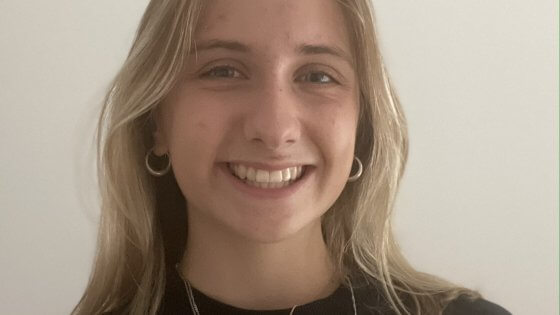Language has always been something that has interested me. I grew up in a bilingual Ukrainian-Russian household in Canada, a bilingual English-French country. I never formally learnt Ukrainian or Russian, since my Ukrainian family did not want me to confuse the two, so I learnt French instead. I completed my schooling half in French and half in English from kindergarten until the end of my undergraduate degree. I lived in Quebec City and Paris, and no matter how much I thought I mastered the French language, I still had an accent, and people were quick to reply to me in English.
Unknowingly, these experiences showed me just how politicized language could get. Years later, I am living in Tbilisi, Georgia during Russia’s war in Ukraine. For me, Tbilisi reminds me of the movie Casablanca — it has become the basin for refugees (and tourists) escaping both Ukraine and Russia. It is also the relatively cooler summer destination for tourists from Gulf countries, and the city’s nightlife attracts young people from all over Europe. All these people make up the dynamic fabric of Tbilisi, and I wondered how these diverse groups communicate or even find their way around Georgia. Increasingly, people find a middle-ground through the English language.
Georgia was part of the USSR, and before that it was a part of the Russian Empire. For centuries, the Russian language was cemented as the lingua franca. That said, greater political changes such as Georgia’s independence from the USSR in 1991, the Russian invasion in 2008, and the 2022 war in Ukraine have shifted everyday language use in Georgia as well. From my three month stay in Georgia, I learnt that the younger generation does not only prefer speaking English, but often times they cannot speak Russian either.
Of course, many young people still speak Russian. However, if they find themselves in, say, the service industry, working night shifts at one of the many warehouses-turned-restaurants that ornament Tbilisi, they usually refuse to speak in Russian.
I asked people here why this is, and they usually point to the same thing: the connotation of the Russian language. Georgia is an independent country, with its own language and Western-leaning agenda, which translates to the preference of the English language as the international language. Georgia is no longer a colony for people from the center of the empire to use for its wine, great food, and warm climate. No one tourist lays a greater claim over Georgia than others, and for younger Georgians, the language for all tourists is English.
Here is where my own research intersects with my experience in Tbilisi. I study how language was impacted in Ukraine since the 2014 Euromaidan Revolution. Through my research, I found that many Ukrainians still spoke Russian, despite Euromaidan’s aim to move the country away from Russia and towards the West. This is because Russian was revoked of its social prestige, and it became, simply, the language of communication. Meanwhile, the Ukrainian language obtained greater esteem, and when navigating more symbolic or culturally significant spaces, such as politics, television or school, many Ukrainians used the Ukrainian language when occupying these spaces.
Russia’s war in Ukraine has shifted these dynamics. I intend to study how exactly the perception and usage of the Russian language has changed in Ukraine, specifically in Kyiv, for my Major Research Paper (MRP). What I can say for now, based on conversations with friends in Kyiv and speculations of social media posts, is that there is less room to speak Russian, even colloquially. Like Georgia, Ukraine has been subject to Russian imperialism for centuries. However, the Russian language in Ukraine was not widely associated with the language of the occupier until very recently. Georgia, on the other hand, held this association especially since 2008, when Russia occupied the Georgian regions of South Ossetia and Abkhazia.
Of course, language choice is an individual preference. Studying language choice in Ukraine from Canada usually takes the form of reading papers and statistics, and I forget about the people who make up the numbers I am reading about. Living in Tbilisi and working at EECMD showed me just how individual these choices can be and when writing my MRP, I will better understand the person behind the statistics.
‘The views expressed are those of the author (Dasha Akhova) and do not reflect the official policy or position of Eastern European Centre for Multiparty Demoocracy (EECMD)’
“Language has always been something that has interested me. I grew up in a bilingual Ukrainian-Russian household in Canada, a bilingual English-French country. I never formally learnt Ukrainian or Russian, since my Ukrainian family did not want me to confuse the two, so I learnt French instead.” – Dasha Akhova
